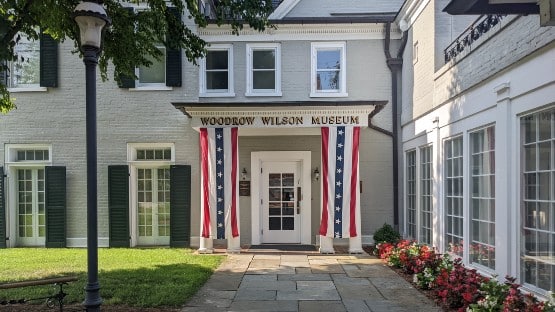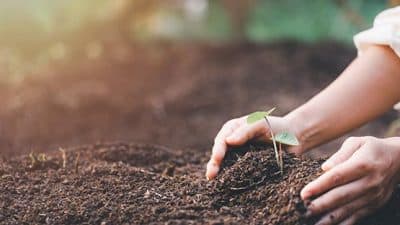
Many of the groups are based in counties where the Atlantic Coast Pipeline or Mountain Valley Pipeline would cut through mountainous, rural farms owned by generations of families and rural communities with unique cultures. In a letter to FERC, the groups said the agency must include the “cultural attachment issue” in the EIS, to give public policy makers the ability to consider the economic, social, and cultural impacts that might occur from the routes under consideration by proposed pipelines.
In a culturally-attached area, land is not valued as a commodity or an investment. People believe that there is not enough money on this earth to buy the land. These values—the ‘sense of place’—have developed over hundreds of generations of evolving ‘cultural attachment’ to the natural, physical, and spiritual environment. This attachment bears directly on the beliefs, practices, cultural evolution, and identity of a people.
Preserve Craig sent a Cultural Attachment report to FERC which establishes the scientific validity of Cultural Attachment as a social phenomenon and as a decision-making policy tool in addressing community concerns for the proposed Mountain Valley Pipeline.
Bill Wolf Statement: “Preserve Craig, Inc. is concerned that the proposed Mountain Valley Pipeline (MVP) will irreparably harm impacted communities, especially those that are “culturally attached.” Preserve Craig, Inc., and representatives of other communities, has raised Cultural Attachment as a significant issue for analysis in the process of developing an Environmental Impact Statement (EIS) for the MVP.”
In an article published in the Points West Chronicle, the GW&JNF stated that some people talked about how they interacted with Peters Mountain. Others talked about the mountain in a spiritual sense, almost making it human. Each of the three elements of Cultural Attachment, land, place and kinship, are fundamental aspects of the human experience. Attachment to land is one of the most fundamental experiences of human existence. “Attachment to Place” and “Sense of Place” helps to forge self-identity and social meaning within a community. Kinship is one of the most important and central areas of study within anthropology. The development of social relationships is both personally meaningful and socially legitimate, and they intertwine to produce healthy relationships that sustain a society.
Peter Agelasto Statement: “One has only to look at the disruption of theculture and history of Blue Ridge communities by the Blue Ridge Parkway in the 1930s to understand the strong cultural attachment to the land of people in the Rockfish Valley. Writers have studied the people and their ways for 100 years who live in this valley. The roots of many families are as deep as 10 generations. One has only to look at the registered historic properties, the existence of old communities, mills, farms and the like to understand this issue is life itself in the South Rockfish valley. There exists a rural historic district in the valley with over 100 significant properties. The view shed is as much a fabric of the lives here as anything and recognized in that district. Unfortunately the pipeline runs DIRECTLY thru those resources and the numerous farms, some of which have been in operation over 250 years like Elk Hill and Glenthorne. Culture and history don’t get any more basic than this and the resultant Cultural Attachment has to be recognized. The pipelines take away land, intrude into communities and disrupt families who have lived in these areas for generations. Fracked gas pipelines disturb the sanctity of our rural cultures and communities. Our mountains and rural cultures are unique and sacred grounds.”
“Nelson County is a treasure of history, culture and natural resources of immense importance to not just our residents and visitors, but to the Commonwealth and the country,” said Connie Brennan, of the Nelson County Board of Supervisors. “Founding fathers, early settlers, Native Americans, freed slaves: all are connected and part of this beautiful part of Virginia. To not consider the attachment to this place by the many that have lived here for generations, their ancestors, and their families is shameful beyond belief. Our relationships with our families, our communities, our history and our land are quintessential to one’s identity. This place lives and breathes the finest and most precious parts of Virginia. It cannot be chopped up in the pieces of a pipeline route and is as integral as a whole as is the heart.”
David Perry Statement: “It’s our experience that landowners in southwest Virginia have an attachment to their land that is far stronger than simple ownership. Their land may have been in their families for generations, in some cases going all the way back to grants from the King of England preceding the American Revolution. Their land is often how they make their living. It contains the sweat of their parents’ and grandparents’ brows—hard-working mountain people who eked a living out of narrow creek bottoms in mountain valleys and from red-clay soils in rolling hills. Their land is not an asset or a commodity any more than a child or loved one. When landowners conserve their land forever with the Blue Ridge Land Conservancy, they sleep easier at night knowing the family farm will never become a subdivision or shopping center. Cultural attachment is the primary reason why they conserve their farms, even more than their desire to protect the environment.”










